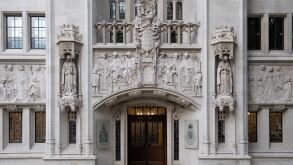The Brazilian tax system is all based on the Federal Constitution. Unlike in most countries, where the Constitution is very small and establishes only the basic guidelines that direct society, leaving the construction of the legal system to the laws, the Brazil Constitution is extremely thorough, especially in terms of tax law, having established all parameters that must be followed in the institution of taxes.
Although the Constitution establishes all principles and rules that must be complied with in the institution of taxes, the Brazilian legislation is extremely defective, confusing, and has on many occasions violated what has been provided for by the Constitution. This all leads to taxpayer uncertainty and generates the need to file lawsuits to have such laws declared unconstitutional.
Taking into account that the Brazilian Constitution has the rules and principles that direct the tax law, the great majority of the discussions regarding the legislation need to be analysed by the Federal Supreme Court, which has to examine possible violations to the Federal Constitution.
The journey through all instances all the way to the Federal Supreme Court in average does not last less than three years. For that reason, a very useful instrument in the fighting against the harmful effects of the unconstitutional laws is the granting of a preliminary relief, authorising the suspension of the enforceability of the tax, which is, providing the taxpayer with the right not to pay the tax that has indications of unconstitutionality, until the final decision by the judiciary power.
Obviously the suspension of the enforceability of the tax may only be justified when the judge identifies that there are elements of merit which corroborate the arguments of the taxpayers for the unconstitutionality of the law.
However, what has occurred in the Brazilian judiciary is the constant resistance in determining the suspension of the enforceability of the tax under the argument that tax collection “will not prevent the maintenance of the activities of the company”, or “if the company has been paying the tax, there is no reason to stop doing it now”.
The judges assume that if the taxpayer can afford to pay the tax until the final decision of the Federal Supreme Court on the unconstitutionality of the law that instituted such a tax, it may continue doing so and, if the taxpayer wins the suit, it may request the refund of the unduly collected amounts.
However, taxpayers may not be subject to the collection of taxes where unconstitutionality is evident even before the final decision of the Federal Supreme Court, under penalty of consciously violating the ability-to-pay principle and the right to property, and of collecting a confiscatory tax.
In addition to that, ordering that the taxpayer collect a tax that seems to be unconstitutional for understanding that “it may later request the refund” is the same as ordering that such taxpayer be subject to the slow system of refund and compensation of taxes of the Brazilian Revenue Service, whose answer may take years.
We do not expect that the judges suspend the enforceability of every tax where the law is claimed to be unconstitutional by the taxpayers. What we intend is that the judges, aligned with the principle of morality, which is imposed upon them and based on the interpretation according to which a certain tax law is unconstitutional, do determine the suspension of the enforceability of the tax, under penalty of unfairly punishing the taxpayers with the need for collection and later exercise the right to refund/compensation.
This article was written for International Tax Review by Alessandra Gomensoro, a partner, and Ricardo Cosentino, a tax lawyer, in the tax department of Mattos Filho, Veiga Filho, Marrey Jr e Quiroga Advogados.










